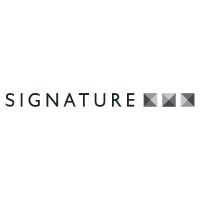

Legal Director Western Europe | Colgate-Palmolive



Barbara Naouri
Legal Director Western Europe | Colgate-Palmolive
How do you approach managing legal aspects during periods of instability or crisis to ensure the organisation’s resilience?
In times of instability or crisis, I see the role of the legal team as creating clarity and stability in an environment that often feels unpredictable.
The first step is always to quickly map out the legal risks, looking at our regulatory obligations, contracts, and potential liabilities, so leadership knows exactly where the most urgent issues lie. This helps the company to act decisively without overlooking compliance. Though it is crucial here to align with the business. Legal strategy must be made in line with the company goals.
Second and equally important is governance. As legal director, I ensure sure decision-making processes are clear, documented, and defensible for Colgate. In a crisis, choices are made quickly, but proper records of “why” and “how” we acted will protect the organisation later from disputes or regulatory challenges. I also stress to teams the importance of documenting our decisions as a group – this protects us legally and shows accountability.
Third, communication is another area where I involve the wider team at Colgate. I work with colleagues in communications and HR and other business teams to make sure our messages to regulators, employees, and partners are aligned and transparent. Teamwork at Colgate is core and helps us avoid misunderstandings and maintain trust even under pressure.
Finally, I see value in reflection. After the crisis, I encourage a joint review so we can capture lessons learned and refine our processes. By approaching challenges together, we not only stay compliant but also strengthen our collective resilience. Indeed, once the immediate pressure eases, I prioritise learning also within the legal team. Reviewing what worked and what did not ensures we strengthen our playbooks and are better prepared for the future.
I believe – more so in the legal function – resilience comes from foresight, integrity, and adaptability.
AI has been taken seriously as a potentially revolutionary technological change in the legal world for a number of years now. Has it had a meaningful impact in how your legal team works in this time?
AI has already begun to reshape how our legal team works, though in very practical and carefully managed ways.
One of our most tangible achievements has been building an internal legal chatbot from scratch. This tool allows other departments to ask straightforward legal or procedural questions, or quickly locate internal policies and templates. It has reduced the number of repetitive queries directed to the legal team and freed up time for us to focus on more complex, strategic matters.
In parallel, Colgate has invested in AI-powered search tools that support tasks such as document comparison, summarisation, and even creating slides, videos or visuals to support our work. These solutions help us move faster in negotiations, marketing and advisory work, while maintaining accuracy and consistency (i.e. templates). To embark our employees to join the AI “wave”, Colgate organises AI bootcamps, AI coffees and sharing knowledge sessions, including AI guidelines and playbooks to help everybody use and find the necessary tools.
In our legal team, we also decided to invest in a legal case law search tools enhanced by AI, which improve both speed and precision when researching evolving areas such as unfair competition.
Importantly, we also take the governance side very seriously. At Colgate, we have an AI registry to track all AI tools in use, ensuring transparency, accountability, and alignment with both corporate standards and local regulations. The legal function also plays a central role in this process, guiding the ethical use of AI and sensitising teams to the requirements of the EU AI Act.
In this way, at Colgate, we are not just adopting the AI technology but also embedding the right governance and compliance framework around it.
What factors influence your team’s decision to use external legal services versus handling matters in-house, and what criteria are used to evaluate their performance?
In the legal team, we decide that many complex matters are effectively managed in-house, leveraging our team’s expertise and understanding of the business.
External counsel is engaged selectively, mainly for niche areas such as highly specialised regulatory topics that demand unique skills or jurisdiction-specific knowledge.
Their performance is assessed against clear criteria, including subject-matter expertise, responsiveness, cost-effectiveness, communication clarity, and alignment with strategic objectives.
Ultimately, we value partners who not only ensure legal compliance but have the ability to deliver practical, outcome-driven solutions that support broader business goals.
Legal Director and Compliance Officer for Western Europe | Colgate-Palmolive